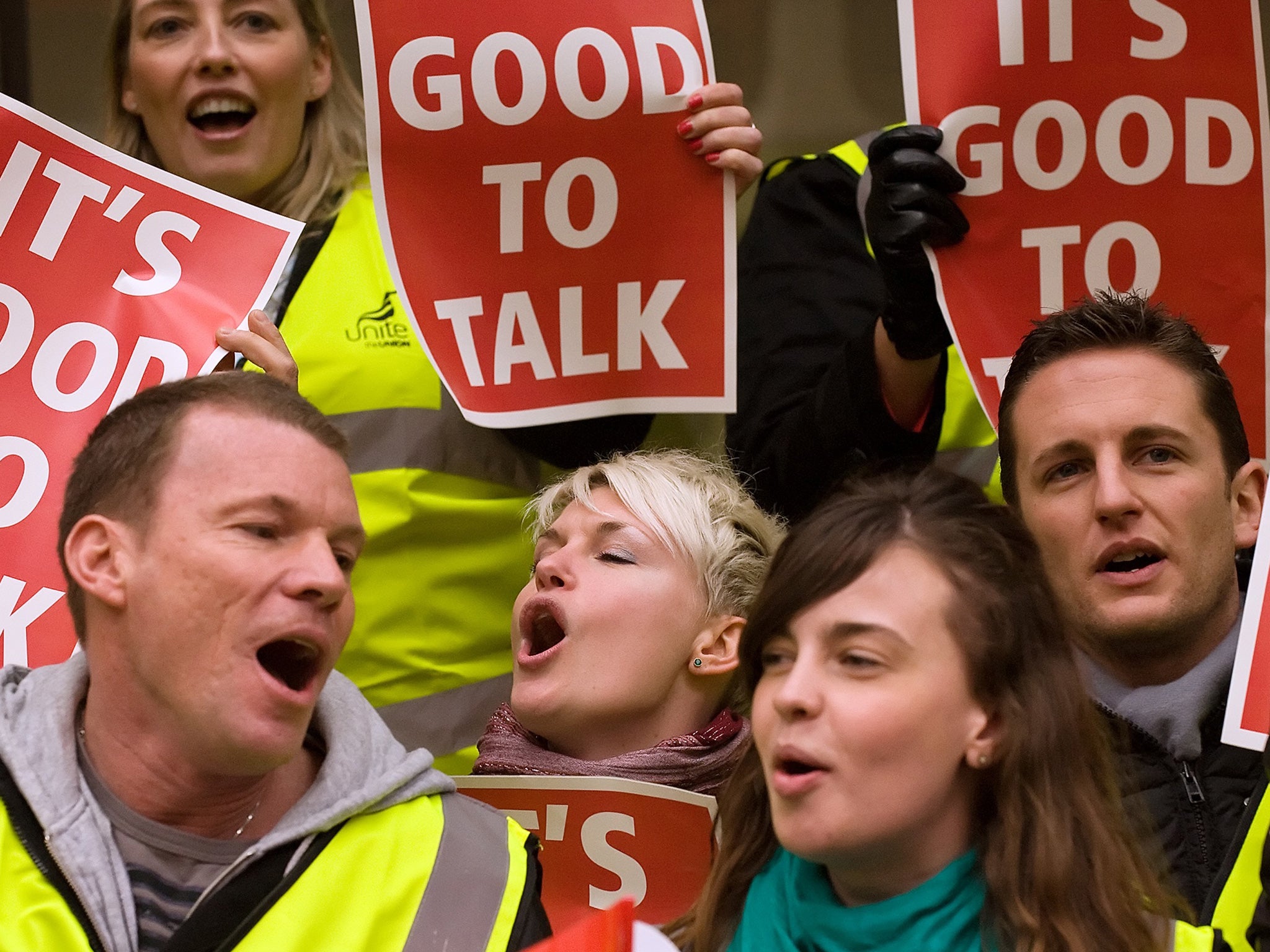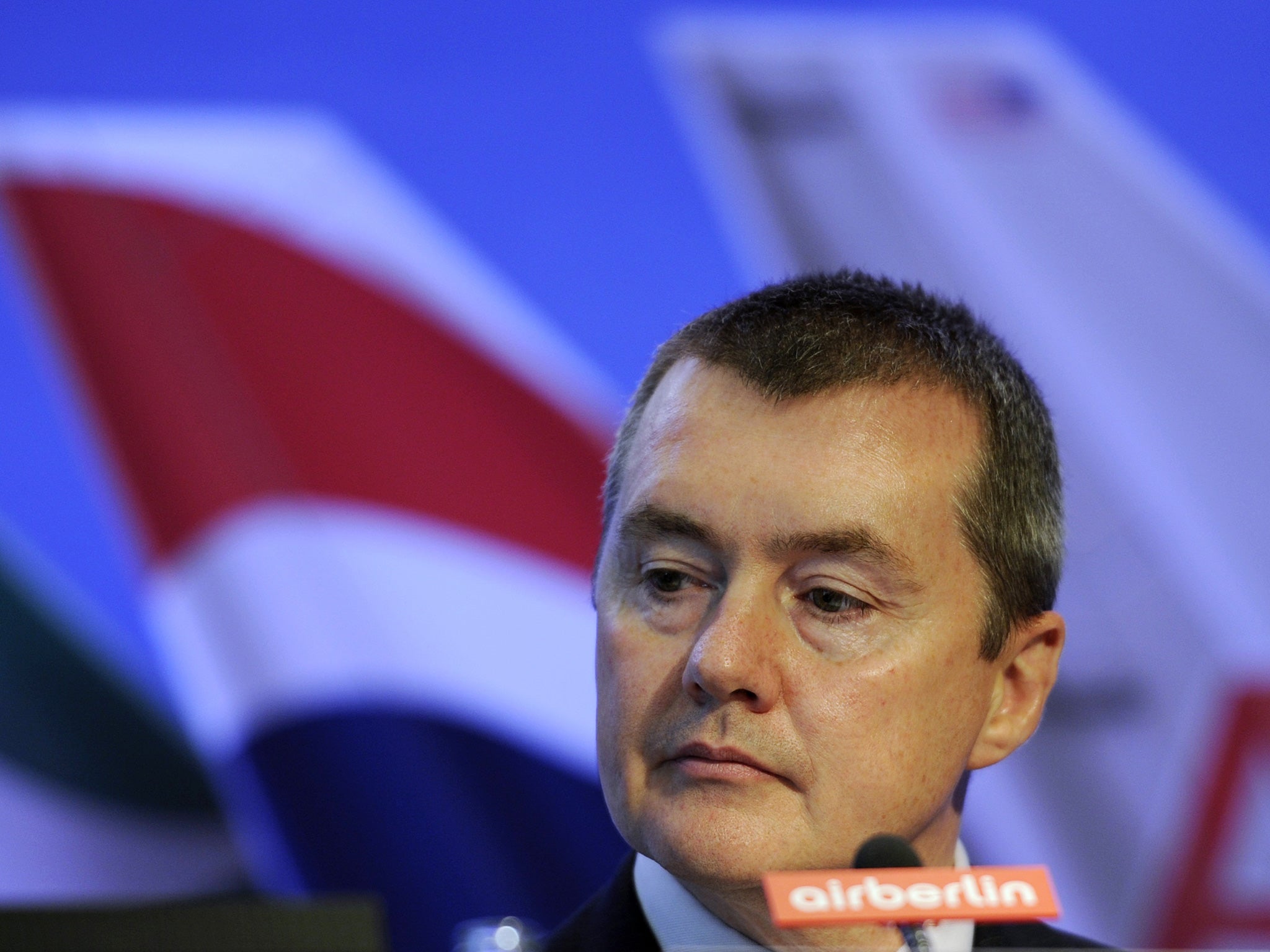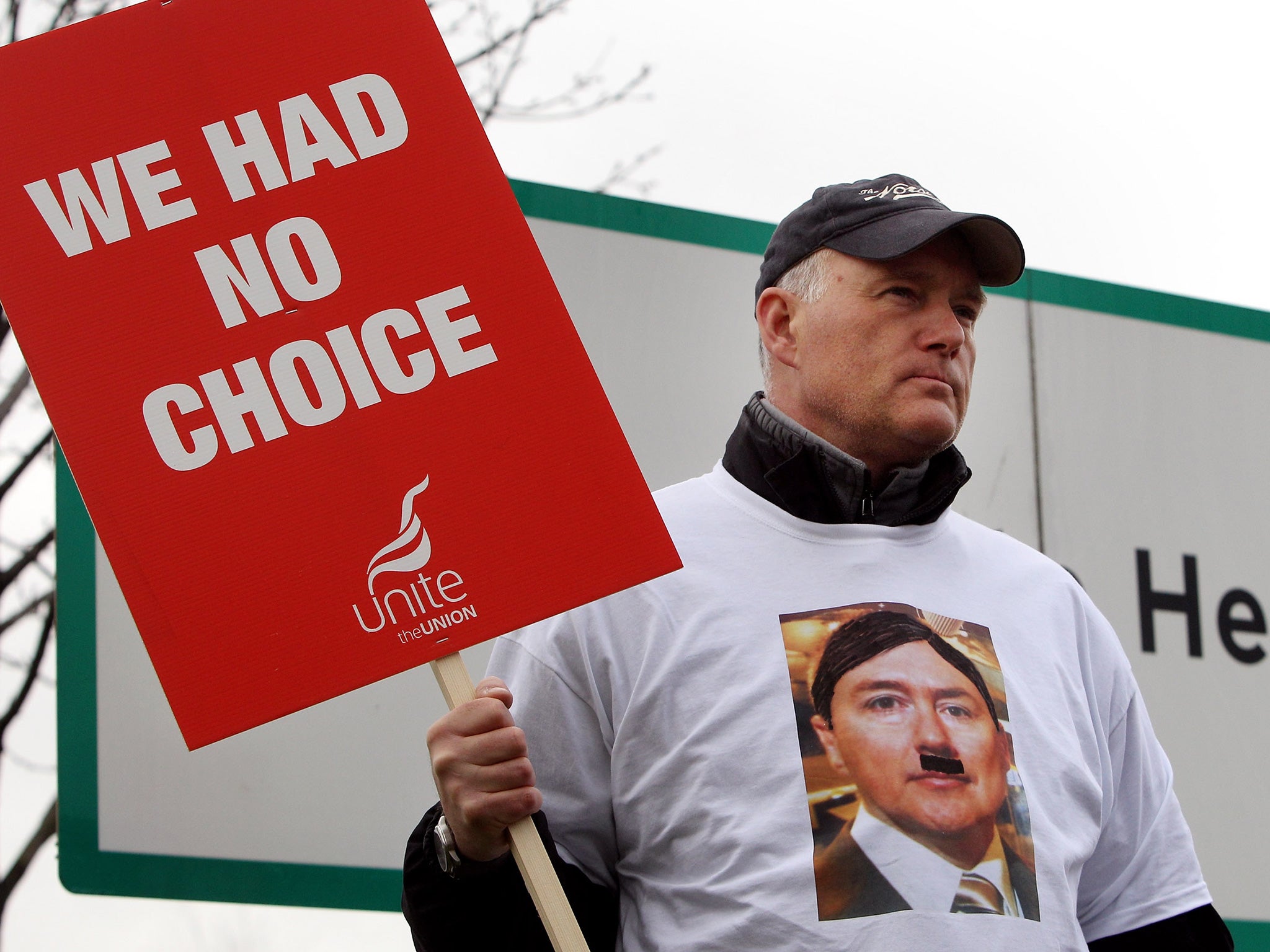British Airways 'spying' scandal: How the world's most famous airline spied on its own staff
BA paid £1m in compensation for its in-house investigators’ activities, and ‘improperly accessed’ employee emails and phone calls in union dispute

Your support helps us to tell the story
From reproductive rights to climate change to Big Tech, The Independent is on the ground when the story is developing. Whether it's investigating the financials of Elon Musk's pro-Trump PAC or producing our latest documentary, 'The A Word', which shines a light on the American women fighting for reproductive rights, we know how important it is to parse out the facts from the messaging.
At such a critical moment in US history, we need reporters on the ground. Your donation allows us to keep sending journalists to speak to both sides of the story.
The Independent is trusted by Americans across the entire political spectrum. And unlike many other quality news outlets, we choose not to lock Americans out of our reporting and analysis with paywalls. We believe quality journalism should be available to everyone, paid for by those who can afford it.
Your support makes all the difference.British Airways paid £1m to hush up the details of a spying operation in which the phones and emails of its own cabin staff were allegedly improperly accessed during a bitter dispute with Britain’s largest union.
The payment was made to stop the union, Unite, suing BA over the operation by specialist investigators based at Heathrow. Unite claimed the private communications of 10 BA staff, some of whom were also union officials, were accessed during a period in 2011 when the airline faced renewed strike action.
The decision to deploy the airline’s in-house investigators, many of them former Scotland Yard and security services personnel, was taken at the highest level within BA, according to information given to The Independent. The use of effective espionage against members of a major UK union, by a flagship UK company worth close to £12bn, raises new questions about the scale of use of private investigators inside Britain’s largest companies.
The £1m payment by BA, designed to brush potentially damaging disclosures about its activities under the carpet, echoes the £1m that Rupert Murdoch’s News Group Newspapers paid to settle the first legal cases relating to its voicemail interceptions, including the claim of Gordon Taylor, the chief executive of the Professional Footballers’ Association.
When Unite discovered the communications of its representatives at BA had been accessed, it hired the lawyer Daniel Taylor to begin legal action and represent cabin staff who had been targeted.

BA, now part of International Airlines Group (IAG), maintained that as it owned the computers and mobile phones used by many of its staff, it had been acting entirely within the law when it took the decision to “monitor” communications of some staff.
Some of the details acquired by the BA investigators were described to The Independent as “highly personal” and having little to do with the central issues being discussed.
Although Daniel Taylor is understood to have brought the claims close to an out-of-court settlement, his firm, Taylor Hampton, was dismissed by Unite, which itself handled the final stages of the negotiations with BA in late 2011. The final sum paid to the union, according to legal sources inside Unite, was about £1m.
Mr Taylor subsequently took the unusual step of suing his former client over unpaid fees. In documents lodged at the High Court’s Queen’s Bench Division and acquired by The Independent, Mr Taylor claimed he was owed £180,927 by Unite on “behalf of certain of its members”. Invoices detailed in the claim are understood to relate to cabin staff whose communications were accessed in the first half of 2011.
Had Taylor Hampton’s dispute with Unite gone to court, it would have led to the full story being made public of BA investigators accessing emails and phone messages. Given that this was when the News International phone-hacking scandal was at its height, it is likely that BA would have felt especially anxious to avoid headlines linking it to communications interceptions of any kind – even though there was no suggestion of criminality on BA’s part.
Taylor Hampton and Unite were contacted by The Independent. The union would say only that it had dealt with Taylor Hampton over a “variety of matters”, and that the subsequent dispute over “justifiable fees” had been resolved. Unofficially, union sources said they were bound by a confidentiality agreement.

Mr Taylor said he had taken the action against Unite with “a great deal of regret” but was prevented by a similar confidentiality agreement from discussing further details.
The Independent gave BA the full details of Unite’s legal claim, how investigators had accessed emails and phones, the £1m settlement, descriptions of its investigations unit at Heathrow – set up ostensibly to improve passenger safety and security – and Mr Taylor’s intended legal action.
The company’s response said: “We can state categorically that we have never illegally accessed any telephones or emails of Unite staff.” It would not discuss details of its negotiations with Unite.
In January 2011 BA cabin crew voted in favour of fresh strikes that were part of an ongoing dispute that went back to 2009. BA had gone to the courts to prevent a strike, and was successful in halting a planned strike because of flawed ballot procedures.
But in March 2010, after talks again collapsed, a three-day walkout took place amid threats of a further 20-day strike. BA responded by telling cabin staff that if they took part in the action they would lose valued travel perks.
Elements of that disagreement lasted throughout 2010 and into 2011.
It was reported in 2010 that the appointment of Len McCluskey as the new head of Unite had done little to improve the union’s relationship with BA.
The long-running dispute had previously seen the airline lose £150m through strikes.
In January 2011, when the accessing of communications by BA investigators is believed to have begun, BA’s then boss, Willie Walsh, became chief executive of IAG following the merger with the Spanish airline Iberia.
Surveillance by employers, what are your rights?
The internet is full of conflicting advice about what rights companies have to access employees’ communications. Most websites state that the intentional “interception” of emails without “lawful authority” is prohibited and that if communications are “monitored”, employees need to be informed in advance.
But Rebecca Tuck, a barrister at Old Square chambers which specialises in employment and discrimination law, said that when employees use a computer or a mobile telephone that belongs to their employer, employers have the right to monitor their employees’ communications.
However, there are also individual rights covered by data protection law and Article 10 of the European Convention on Human Rights, concerning freedom of expression, which make the issue less straightforward.
Ms Tuck told The Independent that if it could be shown that some individuals were treated differently to others in the company as a result of monitoring, then there could be grounds for legal action. Similarly, if a union representative received less preferable treatment, and that treatment was shown to have a detrimental effect, then a case against the company could succeed. What privacy rights an employee had should be spelt out in their contract.
Join our commenting forum
Join thought-provoking conversations, follow other Independent readers and see their replies
Comments